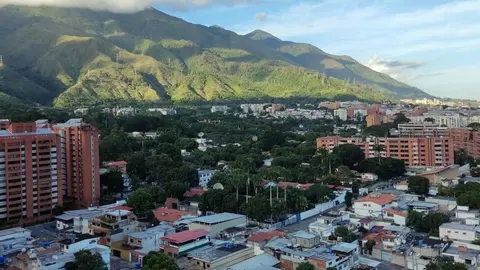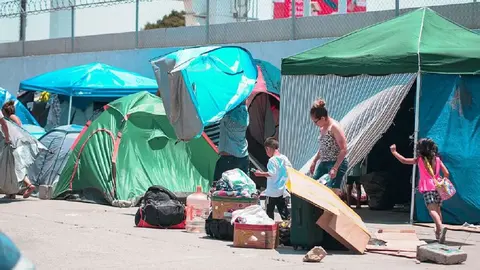The hottest summer ever: record temperatures, melting ice and unhealthy air for 99% of the population

The World Meteorological Organization (WMO) warned that the Earth has just recorded the three warmest months in its history. According to data from the European Union's Copernicus Climate Change Service (C3S), global sea surface temperatures have reached record highs for the third consecutive month and Antarctic sea ice extent remains at historic lows for this time of year.
"Our planet has just endured a slow-burning season: the hottest summer on record. Climate collapse has begun. Scientists have long warned of what our addiction to fossil fuels will unleash," said the UN Secretary-General.
"Rising temperatures demand action. Leaders must accelerate the search for climate solutions. We can still avoid the worst of climate chaos, and we do not have a moment to lose," added António Guterres.
For his part, WMO Secretary-General Petteri Taalas stressed that it must be borne in mind that these records for both temperatures and snowmelt are occurring before "the full warming impact of El Niño, which normally occurs in the second year after it develops".

August 1.5°C warmer than the pre-industrial average
According to the C3S monthly climate bulletin, August is estimated to have been 1.5°C warmer overall than the pre-industrial average from 1850-1900. The year to date (January to August) is the second warmest on record, behind 2016, when a powerful El Niño warming event occurred.
August saw the highest monthly average sea surface temperatures of any month, at 20.98 °C (68.98 °F). Temperatures exceeded the previous record (March 2016) every day of the month.
Antarctic sea ice extent remained at a record low for the time of year, with a monthly value 12% below average, by far the largest negative anomaly for August since satellite observations began in the late 1970s. Arctic sea ice extent was 10 per cent below average, but well above the record low of August 2012.
According to predictions by the agency and the UK Met Office, there is a 98% chance that at least one of the next five years will be the warmest on record and a 66% chance of temporarily exceeding 1.5°C above the 1850-1900 average for at least one of the five years.
However, they point out that this does not mean that the 1.5°C level specified in the Paris Agreement, which refers to long-term warming over many years, will be permanently exceeded.
Air pollution kills nearly 7 million people a year
For its part, the UN Environment Programme (UNEP) recalled that air pollution already causes more than 6.7 million premature deaths a year and significantly increases the risk of stroke, heart and lung disease, cancer and other ailments.
"While air pollution can come from natural sources, such as volcanic eruptions and dust storms, most of the world's population is affected by man-made air pollution," said the head of the agency's Climate and Clean Air Coalition secretariat.
Martina Otto specified that the main human sources of air pollution are power generation, transport, industry, residential heating and cooking, agriculture and waste burning. Many of these are also sources of greenhouse gas emissions, and some pollutants are dual agents, causing air pollution and warming in the short term.
International Clean Air Day for Blue Skies was held on 7 September to raise awareness of the serious effects of air pollution.
99% of people breathe unhealthy air
The agency points out that air pollutants are the greatest direct environmental health risk of our time, with 99% of the world's population breathing unhealthy air.
However, Otto points out that while almost all of us breathe polluted air, we are not all exposed to the same levels of pollution. "Differences in air pollution levels often coincide with other inequalities. Exposure at any level can have health consequences that undermine quality of life and have costs for the individual, our societies and our economies".
The agency recalls that just as reducing air pollution is fundamental to improving human health, it is also fundamental to tackling the triple global crises of climate change, loss of nature and biodiversity, and pollution and waste, as well as helping us to achieve several Sustainable Development Goals.












